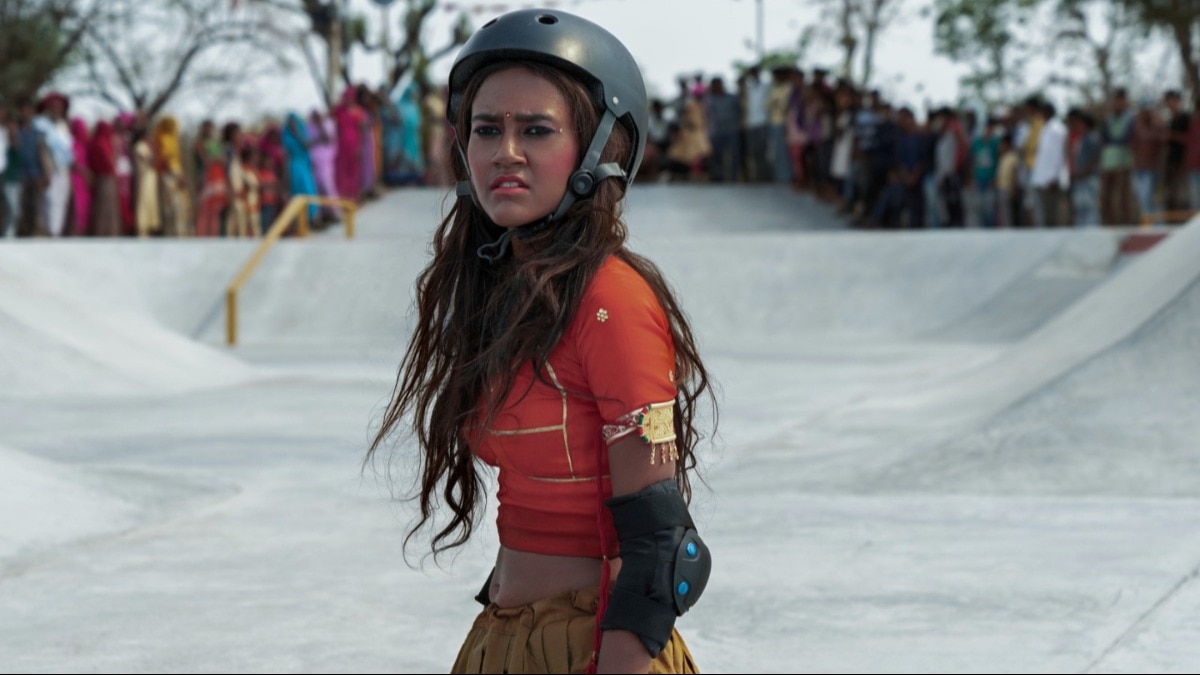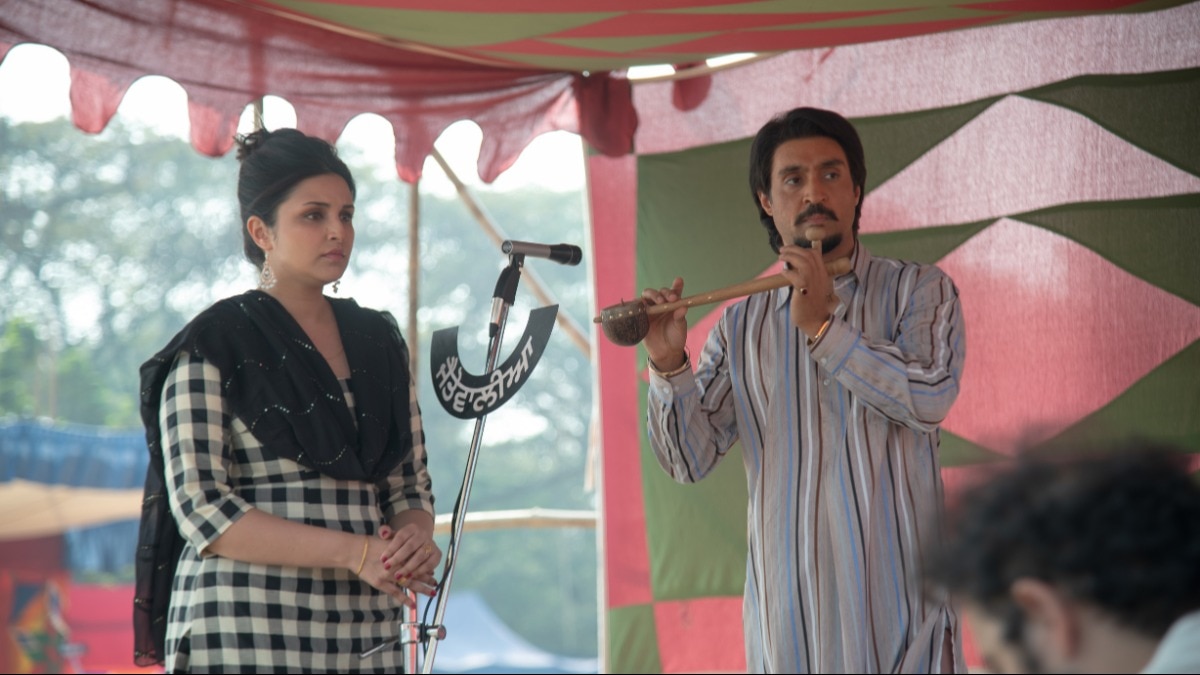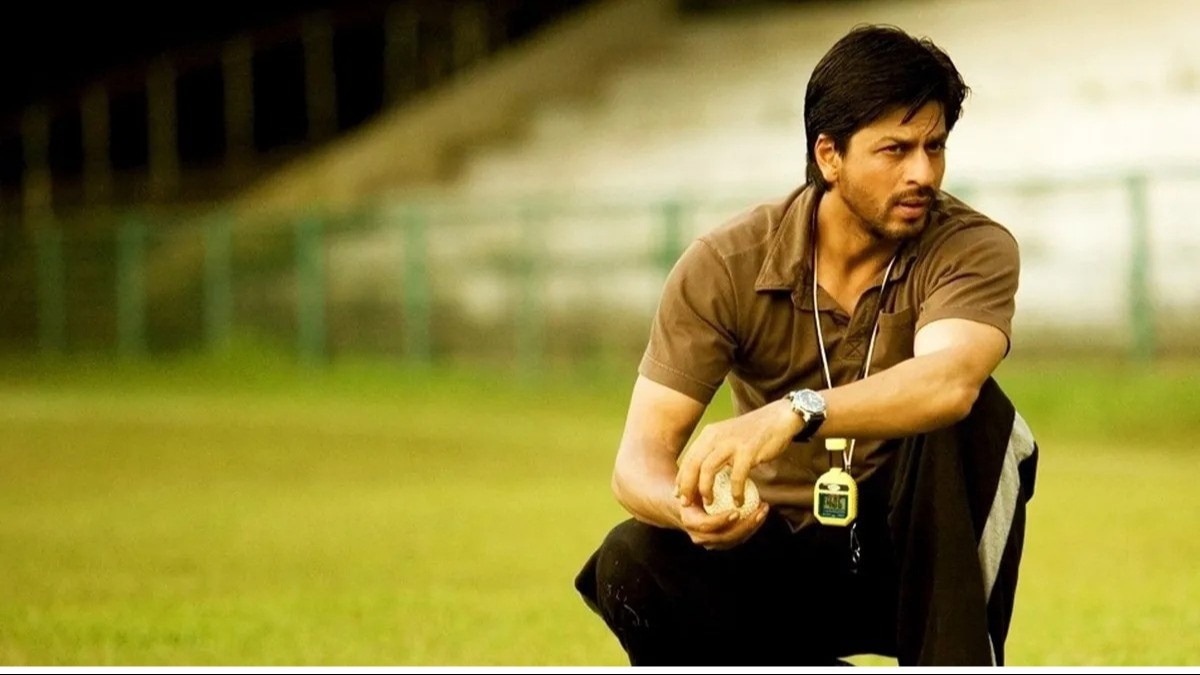
When flawed became 'misunderstood', toxic became 'tragic': Devdas and the charm of Shah Rukh Khan and Dilip Kumar
How the filmy portrayals of Devdas, spearheaded by two of the most charming superstars of the Hindi film industry, led to the romanticisation of the misunderstood, tragic hero, and the rise of a new-age ‘Kabir Singh’.


How many words do you remember learning? Maybe your first, maybe your last, maybe the one that you got wrong in the exam paper. ‘Ma’, ‘dada’, ‘sanctimonious’. But what about the ordinary words? ‘Tree’, ‘bird’, ‘Gandhi’…‘Devdas’?
I’ll wager that you don’t remember the first time you learned the word ‘Devdas’. You might remember reading the book. Or watching one of the films. But the word itself, and what it means, probably came to you like any other ordinary word. An adjective to describe a sort of person. And what sort of a person might that be? Morose? Depressed? Lovelorn? It can be any of these, for a word can mean many things. As does ‘Devdas’. I don’t remember exactly when I first heard it, or what the conversation was, but if I pluck it from a haze of memory and imagination, it went something like this:
A, yours truly, has had his hands smacked by the teacher with a footta, a foot-long wooden ruler. Because there was no sickly-orange-cover covering my notebook, my work-caapi. I sit on one-side of the two-seater bench, my head down over my folded arms on the desk.
There’s a nudge. My friend, H, is poking me with his pencil. ‘Come on, get over it,’ he says.
Without pulling up my head, I push him away with my whole body. My folded arms, along with my white school-shirt, end up dusting the dirty desk.
Why are you being such a Devdas?’
Tears are flowing over my face. My nose is blocked. So, I mumble wetly. ‘What? Who?’
H educates me. ‘He was a boy who was sad.’
‘Why was he sad?’
H shrugged. ‘I don’t know. He was just sad all the time.’
A pretty unremarkable exchange. I guess that’s how most of us first heard about Devdas—depending upon the context it was used in. Maybe he was misunderstood, maybe he was sad, maybe he was a romantic, maybe he was an idiot. And that’s how he stopped being Sharatchandra’s character, and instead, became a word, an adjective with multiple meanings.
Was he ever flawed, though? I doubt many of us heard of him first in that context. Thinking of Devdas as flawed can come with deliberation, with study, with reflection. Sharatchandra intended it that way, knew it to be true, and included a plea at the end of his book to have compassion for his character even though he might not deserve it.
Yet, the intention is often lost once the work of art reaches the masses. The singular meaning gives way to plural meanings. Meanings that came not only from conversational exchanges, diluted like Chinese Whispers, but also from the many film adaptations of Devdas’ story, and an equal number of adaptations of the character. The sort of person Devdas might be, was decided by the leading men of Indian cinema…
Phani Burma played him quietly in the silent era. P C Baruah gave him a voice. K L Saigal made him sing. Dilip Kumar had the wistful charisma. Shah Rukh Khan brought in unmatched charm. Shahid Kapoor lent the torrential anger.
Each iteration, each adaptation of the character has been an adjective. Each actor has brought in his own-little-something to the role. None more so than the era-defining performances of Dilip Kumar and Shah Rukh Khan.
Even though Bimal Roy was essentially faithful to the book, and to the character who was spineless, rash, flawed, even the auteur couldn’t rein in the love-worthiness of Dilip Kumar. There’s just something about his screen presence, haunting middle-distance gazes, and faux haggardness that makes you sympathise with him, root for him. It isn’t problematic by itself—even Sharatchandra wanted to evoke sympathy with his protagonist—but you never see Dilip Kumar as the perpetrator of the misery that consumes him. It doesn’t have as much to do with the writing, and direction, as it has to do with Dilip Kumar just looking so good wallowing in self-pity. It’s a burden borne well by our current generation of women-hating, scorned heroes—case in point, Kabir Singh and the Pyaar Ka Punchnaama series.
Dilip Kumar’s Devdas does hit Paro when they are kids. He is as quick to cruelty with her as he is to make up afterwards. It’s a trait that carries well into adulthood. When Suchitra Sen’s Paro finally rejects Dilip Kumar’s Devdas and the life he has come to offer her, he reverts to little Devdas who would hit Paro for her insolence. And immediately afterwards, wallow in some more self-pity. The beats from Sharatchandra’s novella are there, the stage is set for a suitably unlikable anti-hero—then comes in Dilip Kumar.
Still, the crimes, so to speak, of Bimal Roy’s classic are miniscule since they were committed unknowingly. After all, how can a director stop his hero from being too likeable? For that matter, could Dilip Kumar have stopped it himself had he tried to? Could he have made the audience see past the self-pity, to what was written between the lines? Maybe not.
Let me do a very Bollywoody, Dil-Chahta-Hai-like test. Close your eyes (after reading the next two lines). And think of Devdas. Who do you see?
If you are an under-40-something like me, chances are, when you think of Devdas, you think of Shah Rukh. As clutter-breaking as Bimal Roy’s departure from the Persian-theatre roots of Hindi cinema was, so was Bhansali’s return to them in his version. The melodrama, the overstated performances, the effusive dialogue.
Sanjay Leela Bhansali’s Devdas, inarguably the defining adaptation of our times, makes the scale grander, conjures up conflict-points that weren’t in the book, juices out the drama for a true cinematic but not necessarily faithful adaptation, and makes Devdas a prototype for the true-blue Bollywood hero.
Bhansali’s version came up during the time when Hindi cinema was undergoing an upheaval, when it was just finding its ‘multiplex’ audience. A year before its release, Dil Chahta Hai had been a game-changer. Yet, when Devdas hit the screens, the response was frenzied. The dialogue-baazi was in full force, as was the over-the-top presentation. It made for an effective movie-going experience.
And then there was Shah Rukh, of course. Woven from the same cloth as Dilip Kumar before him. Both of whom could make the most toxic of relationships look like it was worth dying for, who could make pathos aspirational. Shah Rukh, who had already won over the cinegoers of India with unforgettable turns in DDLJ, Kuchh Kuchh Hota Hai, and Dil To Pagal Hai, was the picture-perfect choice, pun intended.
Casting him as Devdas took care of the biggest challenge Bhansali would’ve faced: how to make Devdas Mukherjee, son of Narayan-I-object-Mukherjee, likeable; for one thing is certain, Bhansali’s protagonist is anything but.
Consider this: the first time we see London-returned Devdas meet a lovestruck Paro, he catches a wasp from mid-air, because it may touch what belonged to Devdas alone: Paro. This after the revelation that he’s written her a mere five letters in ten years. To then come and lay a claim on her may have been an apt metaphor for the feudalism of that time and place, but the film sells the moment as romantic. Paro’s eyes, played by Aishwarya Rai, dutifully well up with tears of joy.
I think there’s a ‘Devdas-is-so-toxic…’ joke coming.
This Devdas gets angry at her coyness when she refuses to show her face, at her playfulness when she offers him sondesh only to reveal an empty plate, and at her hand-size that doesn’t accommodate the kangan he wants to adorn it with.
He throws playing cards at her face. When she does the same, he roughly grabs hold of her hair, to strike, then walks away huffing in anger. She runs to console him.
Ah, here it is: Devdas is so toxic that he doesn’t write letters to Paro in his own blood – he makes her bleed, then uses it to symbolically wed her. A literal khoon-bhari-maang, indeed.
There’s also the 'raja beta' syndrome at play here, with Devdas’ mother a pro-max version of Nandini Raichand from Kabhi Khushi Kabhi Gham... and when she goes vamp-mode, of course she’s chewing a betel-leaf.
‘I can’t see this form of a woman,’ Devdas says to Chandramukhi, the courtesan. He hates her, he says. And yet, the audience loves him.
Coming from a lesser star, so many of Devdas’ actions and statements in the film might have exposed the character he plays for all its ridiculousness and hubris, but not so with Shah Rukh. We want to feel sorry for him. We want to overlook his decisions, or the lack thereof, that sentenced him to his life.
And not just him, but so many other ‘heroes’ of Hindi cinema. Stalkers, abusers, violent, moral policemen, outright misogynists, the list is endless, and ever-growing. We have heard the excuses made for them.
He’s tormented in love! The world has been unjust! His lover has betrayed him! Nobody understands him! He’s allowed to say that, he’s allowed to do that, after all, he loves her!
Well, who’s wallowing in self-pity now?
Aayush Gupta is an author-screenwriter whose latest book, My Name Is Not Devdas, the first literary adaptation of Sharatchandra's Devdas, is now available in bookstores.









